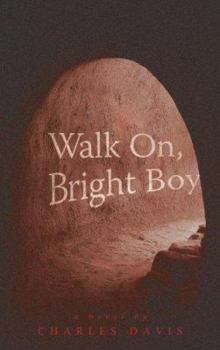Walk On, Bright Boy
A touching account of friendship and betrayal in Moorish Spain, Walk On, Bright Boy evokes the pleasures and purposes of walking as a way of engaging with life. Marrying a coming-of-age tale with... This description may be from another edition of this product.
Format:Hardcover
Language:English
ISBN:1579621538
ISBN13:9781579621537
Release Date:August 2007
Publisher:Permanent Press (NY)
Length:144 Pages
Customer Reviews
1 rating
Lovely novella
Published by Thriftbooks.com User , 15 years ago
Set in Medieval Spain, this story of a boy's first confrontation with political and religious corruption strives less for historical accuracy than for universal applicability. Written with lovely economy and sensitivity, it is reminiscent of a fable or of a young adult coming-of-age tale. At the same time, however, it is also complex in its exploration of human foibles and philosophies. The hero, a boy who is never named, is part of a settlement of Catholic Spaniards, who have recently replaced a population of Moors. One Moor remains to help the new residents manage an irrigation system, which the Moors have developed. The boy befriends the Moor, but after the disappearance of several small children, the Moor is demonized and accused of killing them. He is executed by a priest of the Inquisition who comes to the village for that purpose. While the first half a the story is largely philosophical, as it deals with the development of the friendship between the Moor and the boy, and the boy's coming to espouse a naturally revealed religion, rejecting the hypocrisies of organized religion, the second half of the story is fully dramatic. The boy stumbles upon the true murderer, witnesses the horrors of his deeds, and barely escapes. The depth of this novella along with the excitement of its plot makes it a very successful story that appeals to a various and large audience. I think most readers will appreciate the message of the tale, which encourages one to come to know spirituality through the careful study of nature and teaches one the value of WALKING in life, as a kind of meditative practice. As an atheist, I did not find the critique of organized religion that interesting, and I was not inspired to find God through nature. (I was inspired to do more walking and hiking. What the story tells us about walking is truly enlightening.) But there is another message to this tale, not as obvious as the main one, that I did find compelling. This second message involves the character of the Inquisitor. Although he knowingly executes an innocent man, he is more practical than corrupt. The condemnation of the Moor helps to unify the village, so we are told. A Machiavellian to be sure, the Inquisitor acts as though the greater good justifies some lesser evils. We don't believe this, but the boy at least understand the Inquisitor's motives and presents his actions from his point of view. We also learn the Inquisitor is himself executed later, when he becomes the victim of religious corruption. I couldn't help but like the Inquisitor. He is clever and careful. He thinks before he acts. He is curious, too, which makes him a fairly good listener. He lets the boy talk at the trial, when a more corrupt tyrant would have been more controlling. The boy also holds him in some esteem, although not without some ambivalence too. It is the Inquisitor who saves the boy from the murderer, whisks him away from the village (in which he is no longer welcome as





